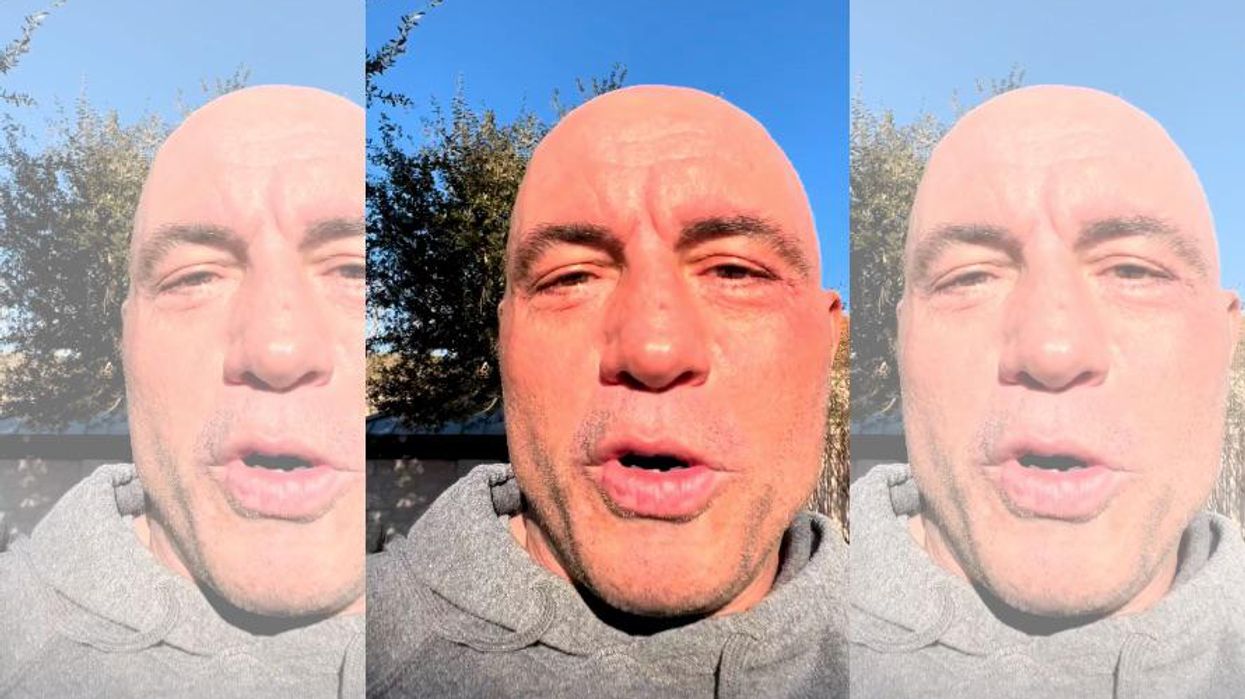
Image source: Instagram/JoeRogan video screenshot

Joe Rogan responded on Sunday to the growing controversy surrounding his podcast, "The Joe Rogan Experience," and he apologized to those angry at him but defended his guests and methods.
Outrage has grown in recent weeks over episodes of Rogan's podcast in which he discussed the COVID-19 pandemic with medical experts who hold certain perspectives about the pandemic and COVID vaccines that contradict the accepted narrative.
Musicians Neil Young and Joni Mitchell, among other creators, had their music dropped from Spotify over what they claim is "misinformation" being shared by Rogan.
In a lengthy Instagram video, Rogan said he believes the driving force behind the outrage is that "a lot of people have a distorted perception of what I do, maybe based on sound bites or based on headlines of articles that are disparaging."
Addressing accusations that his podcast has spread "dangerous misinformation," Rogan defended the credentials of the guests he hosted in the two most controversial episodes.
"One with Dr. Peter McCullough and one with Dr. Robert Malone. Dr. McCullough is a cardiologist and he is the most published physician in his field — in history," Rogan explained. "Dr. Robert Malone owns nine patents on the creation of mRNA vaccine technology and is at least partially responsible for the creation of the technology that led to mRNA vaccines."
"Both of these people are highly credentialed, very intelligent, very accomplished people, and they have an opinion that is different from the mainstream narrative," Rogan continued. "I wanted to hear what their opinion is."
Rogan then tore into the accusations of spreading "dangerous misinformation." Not only is "misinformation" a politically charged and vague word, but Rogan explained that many ideas once labeled "misinformation" about the pandemic are now widely accepted facts.
The problem I have with the term "misinformation," especially today, is that many of the things that we thought of as misinformation just a short while ago are now accepted as fact. Like, for instance, eight months ago, if you said, "If you get vaccinated, you can still catch COVID and you can still spread COVID," you’d be removed from social media, they would they would ban you from certain platforms. Now, that’s accepted as fact. If you said, "I don’t think cloth masks work," you would be banned from social media. Now that’s openly and repeatedly stated on CNN. If you said "I think it’s possible that COVID-19 came from a lab," you’d be banned from many social media platforms. Now that’s on the cover of Newsweek. All of those theories that at one point in time were banned, were openly discussed by those two men that I had on my podcast that had been accused of dangerous misinformation.
Pointing out that he is not a doctor or scientist (unlike Dr. McCullough and Dr. Malone — who have decades of experience in cardiology, immunology, epidemiology, public health, and vaccines — who were otherwise respected voices before they began advancing ideas that countered the accepted COVID narrative), Rogan explained that his main goal in the podcast is asking questions, seeking a spectrum of perspectives, and discovering truth.
"I’m just a person who sits down and talks to people and has conversations with them," Rogan said. "Do I get things wrong? Absolutely. I get things wrong, but I try to correct them. Whenever I get something wrong, I try to correct it because I’m interested in telling the truth. I’m interested in finding out what the truth is."
"And I’m interested in having interesting conversations with people that have differing opinions. I’m not interested in only talking to people that have one perspective," Rogan added, noting that he has also hosted many doctors and medical experts who affirm the accepted narrative about the pandemic and COVID vaccines.
"I’m interested in finding out what is correct and I’m also finding out how people come to these conclusions and what the facts are," Rogan explained.
Rogan said he agrees with Spotify's decision to make available a COVID-19 information portal and said he would like to improve his show by hosting more people who affirm the COVID narrative to improve the balance of perspectives that he hosts.
"My pledge to you is that I will do my best to try to balance out these more controversial viewpoints with other people's perspectives so that we can maybe find a better point of view," Rogan said.
"I want to show all kinds of opinions so that we can all figure out what's going on," he added. "I'm going to do my best in the future to balance things out."
In the end, Rogan offered those outraged at him an apology.
"If I pissed you off, I'm sorry," Rogan said, ending the video by thanking Spotify, his supporters, and "the haters."